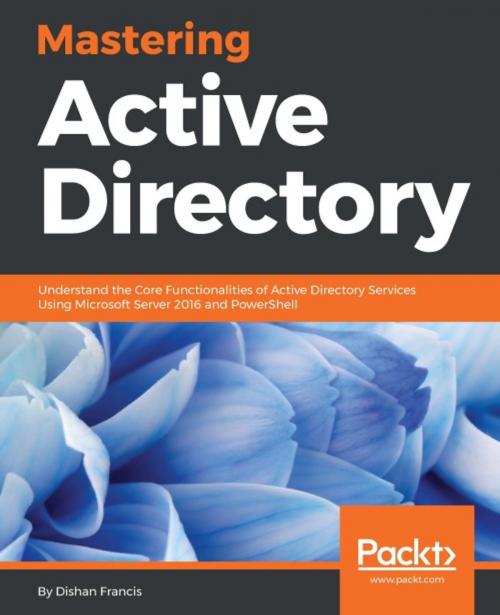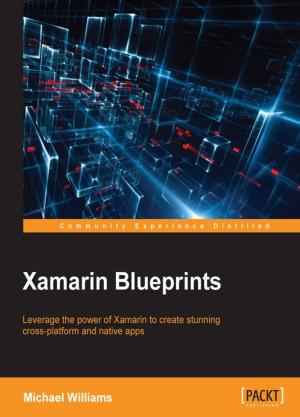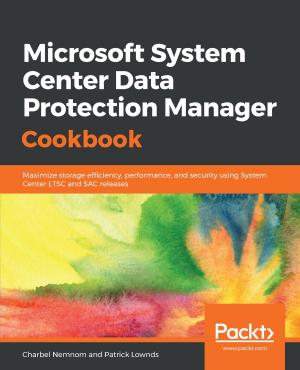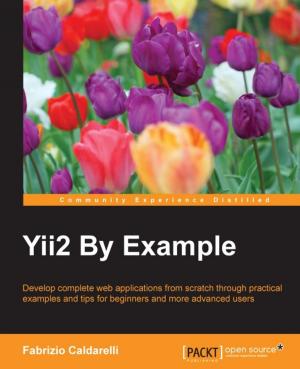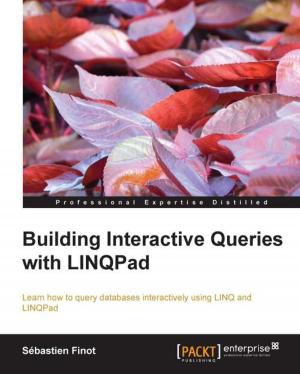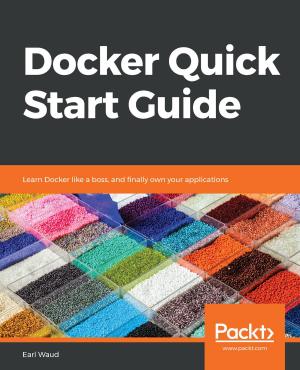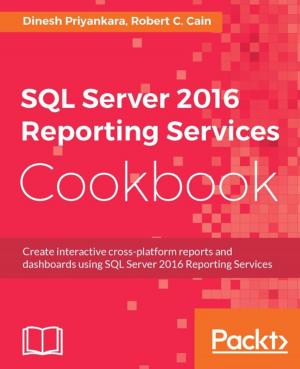Mastering Active Directory
Nonfiction, Computers, Operating Systems, NT, Networking & Communications| Author: | Dishan Francis | ISBN: | 9781787283077 |
| Publisher: | Packt Publishing | Publication: | June 30, 2017 |
| Imprint: | Packt Publishing | Language: | English |
| Author: | Dishan Francis |
| ISBN: | 9781787283077 |
| Publisher: | Packt Publishing |
| Publication: | June 30, 2017 |
| Imprint: | Packt Publishing |
| Language: | English |
Become a master at managing enterprise identity infrastructure by leveraging Active Directory
About This Book
- Manage your Active Directory services for Windows Server 2016 effectively
- Automate administrative tasks in Active Directory using PowerShell
- Manage your organization's network with ease
Who This Book Is For
If you are an Active Directory administrator, system administrator, or network professional who has basic knowledge of Active Directory and are looking to gain expertise in this topic, this is the book for you.
What You Will Learn
- Explore the new features in Active Directory Domain Service 2016
- Automate AD tasks with PowerShell
- Get to know the advanced functionalities of the schema
- Learn about Flexible Single Master Operation (FSMO) roles and their placement
- Install and migrate Active directory from older versions to Active Directory 2016
- Manage Active Directory objects using different tools and techniques
- Manage users, groups, and devices effectively
- Design your OU structure in the best way
- Audit and monitor Active Directory
- Integrate Azure with Active Directory for a hybrid setup
In Detail
Active Directory is a centralized and standardized system that automates networked management of user data, security, and distributed resources and enables interoperation with other directories. If you are aware of Active Directory basics and want to gain expertise in it, this book is perfect for you.
We will quickly go through the architecture and fundamentals of Active Directory and then dive deep into the core components, such as forests, domains, sites, trust relationships, OU, objects, attributes, DNS, and replication. We will then move on to AD schemas, global catalogs, LDAP, RODC, RMS, certificate authorities, group policies, and security best practices, which will help you gain a better understanding of objects and components and how they can be used effectively. We will also cover AD Domain Services and Federation Services for Windows Server 2016 and all their new features. Last but not least, you will learn how to manage your identity infrastructure for a hybrid-cloud setup. All this will help you design, plan, deploy, manage operations on, and troubleshoot your enterprise identity infrastructure in a secure, effective manner.
Furthermore, I will guide you through automating administrative tasks using PowerShell cmdlets. Toward the end of the book, we will cover best practices and troubleshooting techniques that can be used to improve security and performance in an identity infrastructure.
Style and approach
This step-by-step guide will help you master the core functionalities of Active Directory services using Microsoft Server 2016 and PowerShell, with real-world best practices at the end.
Become a master at managing enterprise identity infrastructure by leveraging Active Directory
About This Book
- Manage your Active Directory services for Windows Server 2016 effectively
- Automate administrative tasks in Active Directory using PowerShell
- Manage your organization's network with ease
Who This Book Is For
If you are an Active Directory administrator, system administrator, or network professional who has basic knowledge of Active Directory and are looking to gain expertise in this topic, this is the book for you.
What You Will Learn
- Explore the new features in Active Directory Domain Service 2016
- Automate AD tasks with PowerShell
- Get to know the advanced functionalities of the schema
- Learn about Flexible Single Master Operation (FSMO) roles and their placement
- Install and migrate Active directory from older versions to Active Directory 2016
- Manage Active Directory objects using different tools and techniques
- Manage users, groups, and devices effectively
- Design your OU structure in the best way
- Audit and monitor Active Directory
- Integrate Azure with Active Directory for a hybrid setup
In Detail
Active Directory is a centralized and standardized system that automates networked management of user data, security, and distributed resources and enables interoperation with other directories. If you are aware of Active Directory basics and want to gain expertise in it, this book is perfect for you.
We will quickly go through the architecture and fundamentals of Active Directory and then dive deep into the core components, such as forests, domains, sites, trust relationships, OU, objects, attributes, DNS, and replication. We will then move on to AD schemas, global catalogs, LDAP, RODC, RMS, certificate authorities, group policies, and security best practices, which will help you gain a better understanding of objects and components and how they can be used effectively. We will also cover AD Domain Services and Federation Services for Windows Server 2016 and all their new features. Last but not least, you will learn how to manage your identity infrastructure for a hybrid-cloud setup. All this will help you design, plan, deploy, manage operations on, and troubleshoot your enterprise identity infrastructure in a secure, effective manner.
Furthermore, I will guide you through automating administrative tasks using PowerShell cmdlets. Toward the end of the book, we will cover best practices and troubleshooting techniques that can be used to improve security and performance in an identity infrastructure.
Style and approach
This step-by-step guide will help you master the core functionalities of Active Directory services using Microsoft Server 2016 and PowerShell, with real-world best practices at the end.
